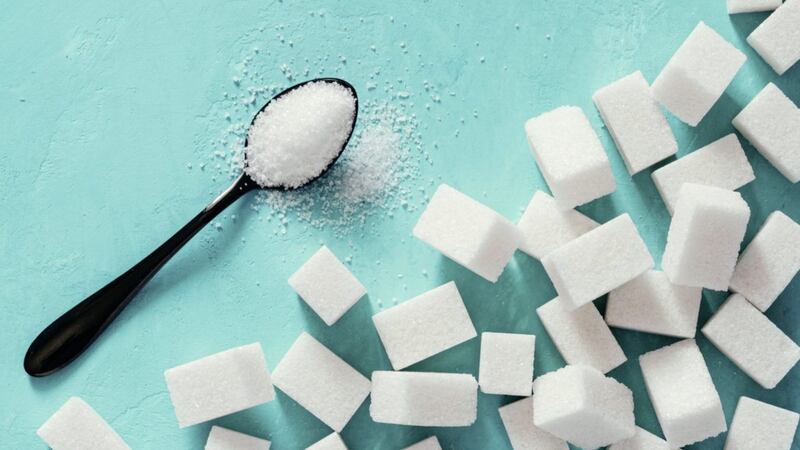SHOCKING figures on sugar consumption by children are part of a wider issue around diet, teachers have claimed.
Avril Hall Callaghan, General Secretary of the Ulster Teachers' Union, said schools played a crucial role in educating pupils about their health but needed the support of parents and media.
She was speaking after statistics revealed children in Britain and Northern Ireland exceed the maximum recommended sugar intake for an 18-year-old by the time they are 10.
While children's sugar intakes have declined slightly in recent years, they are still consuming around eight excess sugar cubes each day, equivalent to around 2,800 excess sugar cubes per year.
Overweight or obese children are more likely to be overweight or obese as adults, increasing their risk of heart disease and some cancers, while more young people than ever are developing Type 2 diabetes.
Excess sugar can also lead to painful tooth decay, bullying and low self-esteem in childhood.
Ms Hall Callaghan said teachers were on the front line when it came to seeing the impact of what children ate and how they performed in the classroom.
"We can see that children who start their lessons having eaten a healthy breakfast, for instance, are better able to concentrate, she said.
"However, the impact of sugary snacks and drinks on children's health is also a growing concern to us, given not only the childhood obesity epidemic and all its attendant health problems, but on children's dental health too."
Last year, statistics revealed that more than 5,000 children were admitted to hospitals in Northern Ireland to have multiple teeth extracted, costing the health service an estimated £9 million.
"In that time a staggering 22,699 teeth were extracted under general anaesthetic from 5,122 under-18s. That is truly appalling," Ms Hall Callaghan said.
"However, not only does sugar play a huge part in childhood obesity and dental decay, it also contributes to poor learning given the high sugar levels of many energy drinks which are still popular among young people.
"These energy drinks often contribute to children's lack of concentration in class thus impacting their ability to learn. So the effects of sugary diets are wide-ranging."
She added that schools played a major role in teaching children about the importance of a healthy diet and, more importantly, backing up that message by offering them healthier choices at lunchtime.
"Indeed we're hearing that children are increasingly aware of the healthy food groups. But this message needs to be reinforced beyond the school gate," she said.
"When children go home, they need to receive a message which is consistent with the good work being done between 9am and 3pm in schools - and teachers need the support, not only of parents, but also of the media which bombards young people with advertising.
"Choosing lower-sugar foods and drinks can make a difference and that's the message we deliver to pupils daily but we need a joined-up approach if it is to succeed and become the preferred lifestyle choice for our young people."








